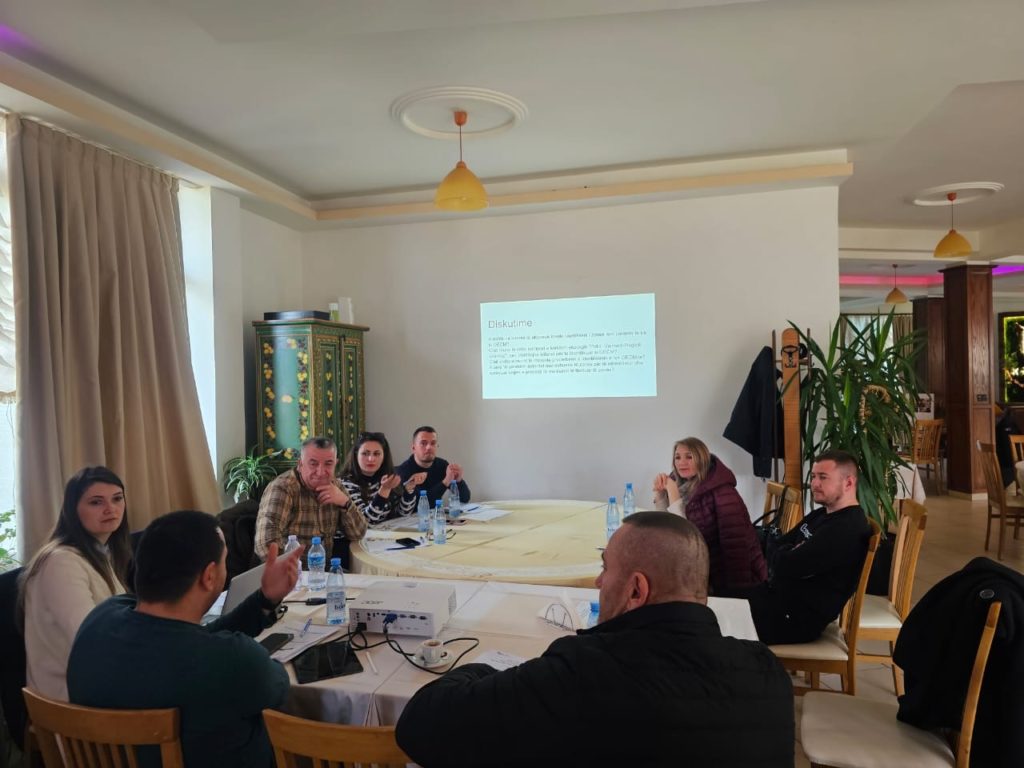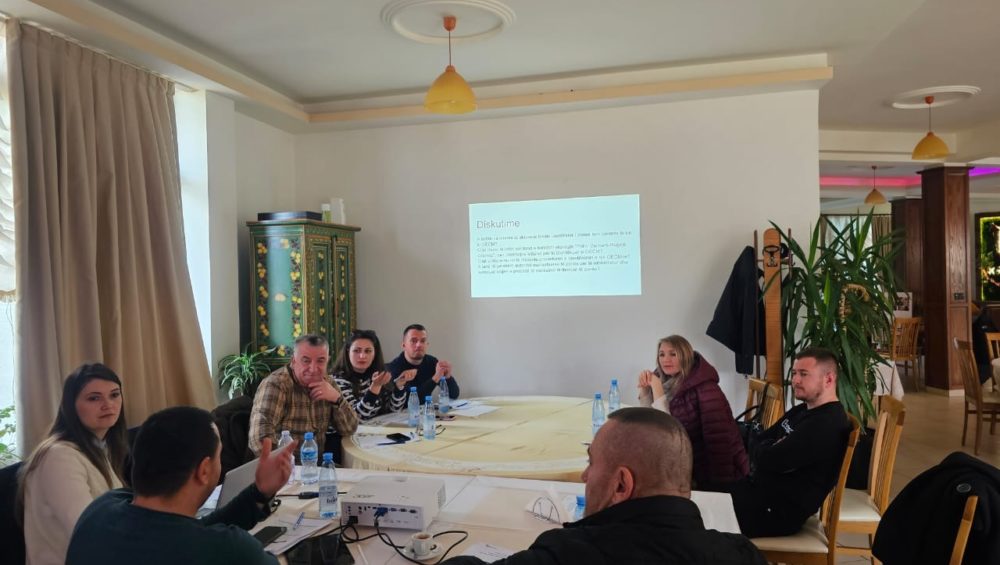The round of the first consultation was concluded with the final workshop that took place in Çorovoda town – Skrapar Municipality on January 19th, 2024. In the workshop attended 10 representatives of the key stakeholders of the Berati-Skrapari areas, including the representatives of the Municipalities, Prefecture of Berati, RAPA Berat, NGOs and private sector that operate in the field of tourism. At first the participants were provided with the briefing of the project achievement so far and the objective set for the next implementation period. A significant space in the discussion was given to the introduction of the OECM concept. The Municipality of Skrapar and RAPA Berat already listed some 3-4 potentially OECM in their area such as Potomi-Radovicka, Tomorrica, TAP footprint etc. However further assessments need to be conducted on a proper mapping of OECM within the CCA and the Skrapar Municipality expressed their commitment to support the OECM identification process.
The main issues discussed during the workshop were the lack of an updated forest management plan in Skrapar Municipality. Management is still based on the plan of 1985. Even the environmental policies in this municipality do not have a strategic approach and the biggest problem is the supervision and guarantee of the implementation of environmental standards by private operators. Erosion of the slopes as well as the coastal one is also a serious problem in this municipality, while there is no plan of measures related to the management of forests and alpine pastures on the ground to dispel this phenomenon.
The main issues discussed during the workshop were the lack of an updated forest management plan in Skrapar Municipality. Management is still based on the plan of 1985. Even the environmental policies in this municipality do not have a strategic approach and the biggest problem is the supervision and guarantee of the implementation of environmental standards by private operators. Erosion of the slopes as well as the coastal one is also a serious problem in this municipality, while there is no plan of measures related to the management of forests and alpine pastures on the ground to dispel this phenomenon.

The urban waste sector is also problematic since the management chain does not have an end user according to the standards, causing natural ecosystems such as streams and rivers to suffer the consequences of the deposition of both urban solid waste and untreated water. The lack of landfills and water treatment plants is an obvious problem.
The exploitation of natural resources by not respecting the environmental standards has worsened the state of the environment in quite a few cases in this space of the Ecological Coordinator. The two most acute problems identified by the workshop participants are quarries and hydropower plants. The quarries turn out to be a complex problem, both in the overlapping of the decision-makers’ competences and in the field implementation of exploitation projects.
Even the HPP sector does not perform better in this aspect. In this area, there are about 50 HPPs built and the demand for new HPPs still continues. Overuse of streams and improper use, by not implementing the mitigation plan, has created a series of environmental and social problems in this municipality as well.
The natural potential of the Skrapar area is estimated to be quite high, however local and central policies for the development of this potential are quite weak. Even though Skrapar municipality has drawn up a tourism development strategy, it still lacks human resources and financial capacity to exploit this potential. The lack of infrastructure, staff and promotion cause the tourism sector, especially natural tourism, to use very little of its potential.
At the end of the meeting, it was agreed with the attendees to engage in contributing to the process of drafting the Action Plan for CCA by being involved in its validation and consultation process. Also, the actors present expressed their willingness to engage in reaching agreements, especially with neighbouring municipalities for cooperation in the management of key sectors. Actors were also engaged to contribute to the mapping of OECMs in this area, within the frame of the project.








